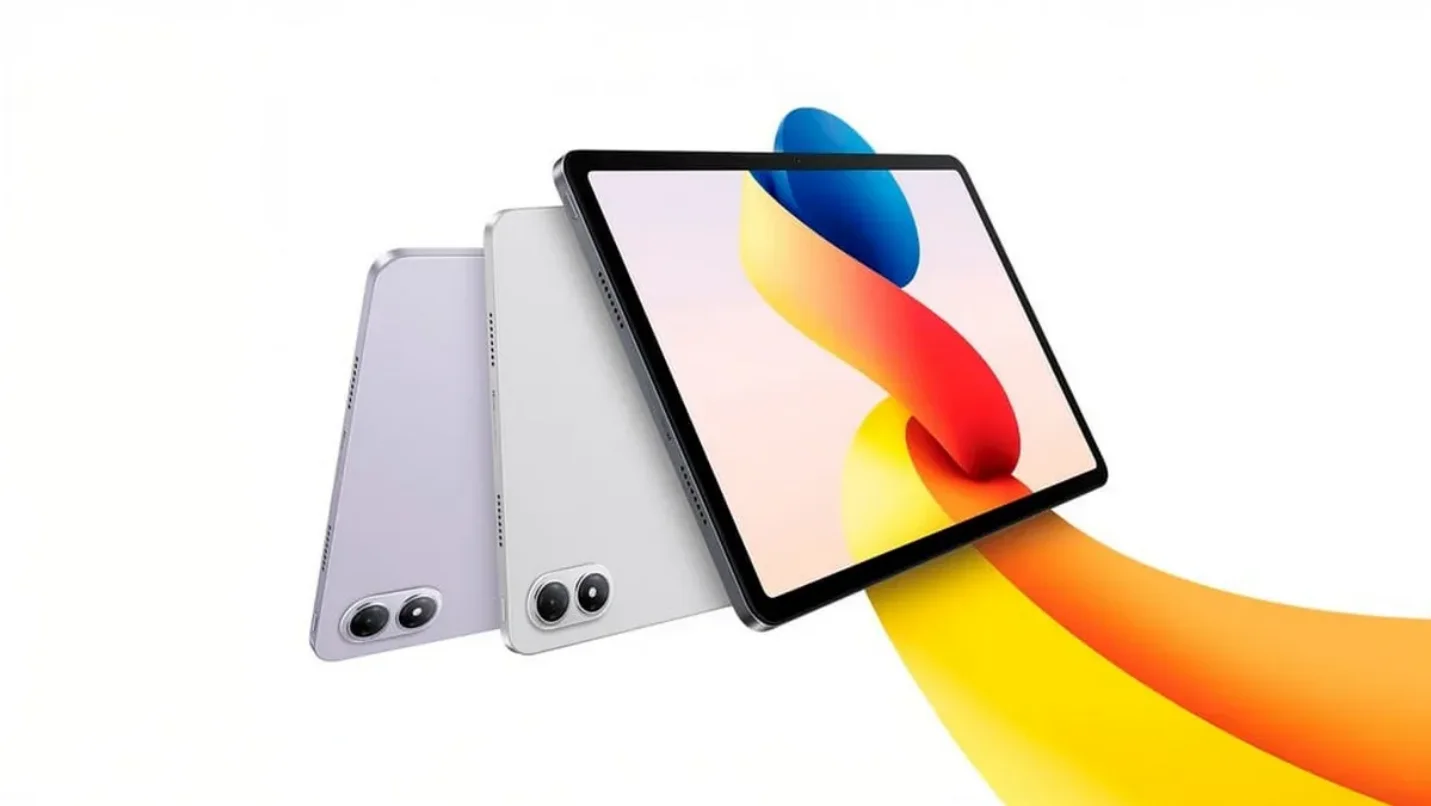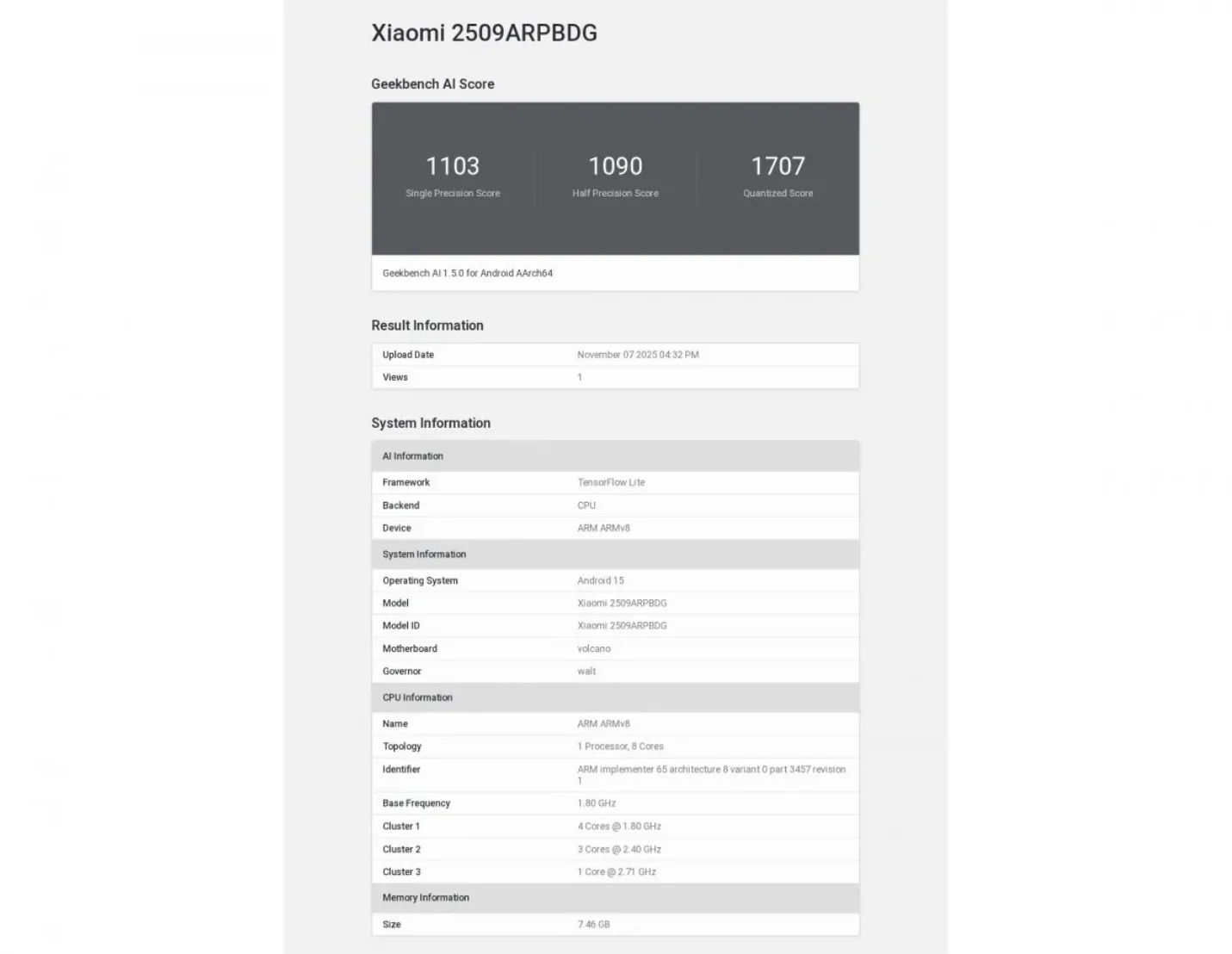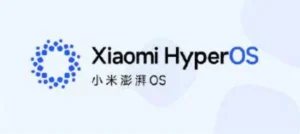POCO Pad M1: Affordable Snapdragon Tablet Incoming
POCO Pad M1: The Affordable Snapdragon Tablet You’ve Been Waiting For
Get ready for another exciting addition to the POCO lineup! Leaks suggest that a new tablet, the POCO Pad M1, is on its way. Following the buzz around the POCO Pad X1 Spotted with Snapdragon 7+ Gen 3 on Geekbench, the {POCO Pad M1} is shaping up to be a strong contender in the affordable tablet market. It’s rumored to pack a Snapdragon processor and offer a compelling blend of performance and value. But is it really a brand-new device, or something familiar in disguise? Let’s dive into the details.

POCO Pad M1: Geekbench Reveals Key Specs
The POCO Pad M1 recently made an appearance on Geekbench, giving us a sneak peek at what’s under the hood. The listing confirms it’s powered by the Qualcomm Snapdragon 7s Gen 4, a mid-to-high-range processor designed to balance power and efficiency. This chipset features a CPU configuration that includes a prime core clocked at 2.71 GHz, paired with an Adreno 810 GPU. This should make it perfect for multitasking, light video editing, and casual gaming. The tested model boasts 8 GB of RAM, although a more budget-friendly 6 GB variant is also expected. Plus, it’ll run Android 15 with Xiaomi’s HyperOS 2.0 skin, which is great news. While Android 16 is out there, the HyperOS update cycle should keep the Pad M1 fresh for a good while.
Performance and Features
While the exact Geekbench scores for the {POCO Pad M1} haven’t been revealed, the Snapdragon 7s Gen 4 generally achieves around 900 in single-core and 2,800 in multi-core tests on Geekbench 6. This puts it ahead of competitors like the MediaTek Helio G99. Beyond the processor, leaks suggest a focus on multimedia and productivity:
- Display: 12.1-inch LCD with 2.5K resolution (2560 x 1600 pixels), 120 Hz refresh rate, and 600 nits peak brightness. It should also be Dolby Vision and HDR10+ certified.
- Cameras: 8 MP front and rear cameras, ideal for video calls and document scanning.
- Storage: Options of 128 GB or 256 GB, expandable via microSD.
- Battery: A massive 12,000 mAh battery with 33 W fast charging and 27 W reverse charging.
Is It Just a Rebranded Redmi Pad 2 Pro?
Here’s where things get interesting. Rumors point to the {POCO Pad M1} being a rebranded version of the Redmi Pad 2 Pro, which launched in China back in September 2025. Multiple sources indicate that the Redmi Pad 2 Pro shares the same Snapdragon 7s Gen 4 chipset and nearly identical specifications. According to this article, Xiaomi often reuses hardware for its sub-brands like POCO, aiming for aggressive pricing in emerging markets. The Redmi Pad 2 Pro launched in China for around $210 USD, which could translate to a price range of €250 to €350 for the Poco Pad M1 in Europe and Latin America. This would position it against competitors like the Samsung Galaxy Tab A9+ and the Amazon Fire Max 11. This practice isn’t new; remember the Poco Pad which was a rebrand of the Redmi Pad Pro.

The Bigger Picture: POCO’s Tablet Ambitions
The emergence of the POCO Pad M1 coincides with the POCO Pad X1 popping up on Geekbench, suggesting POCO is serious about the tablet market. The Poco Pad X1 has a more powerful Snapdragon 7+ Gen 3. As POCO doubles down on tablets, don’t forget to check out some tech news about Xiaomi and its other product lines.
What to Expect from the Launch of the {POCO Pad M1}?
Although there’s no official launch date yet, certifications in Indonesia and leaks suggest a global debut is imminent, possibly before the end of the year. Accessories like the Redmi Pad 2 Pro keyboard could be compatible, adding to its versatility. Keep an eye out for official announcements soon! If you are interested in affordable tablets, remember to check out the Xiaomi Pad series. Also, take a look at our articles about Xiaomi news.
In conclusion, the Poco Pad M1 appears to be a solid, budget-friendly tablet option. If you’re looking for a device for everyday use without breaking the bank, it’s definitely one to watch. With its decent processor, large battery, and potential for a competitive price, the Poco Pad M1 could be another hit for Xiaomi in the affordable tablet segment.







